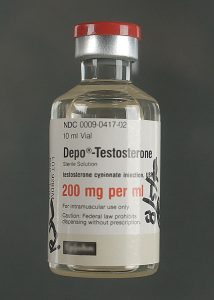Last Updated on June 8, 2024
Anabolic steroids are synthetic variations of the male sex hormone testosterone. The proper term for these compounds is anabolic-androgenic steroids. “Anabolic” refers to muscle building, and “androgenic” refers to increased male sex characteristics. Some common names for anabolic steroids are Gear, Juice, Roids, and Stackers.

Health care providers can prescribe steroids to treat hormonal issues, such as delayed puberty. Steroids can also treat diseases that cause muscle loss, such as cancer and AIDS. But some athletes and bodybuilders abuse these drugs to boost performance or improve their physical appearance.
How do people abuse anabolic steroids?
People who abuse anabolic steroids usually take them orally or inject them into the muscles. These doses may be 10 to 100 times higher than doses prescribed to treat medical conditions. Steroids are also applied to the skin as a cream, gel, or patch.
Some athletes and others who abuse steroids believe that they can avoid unwanted side effects or maximize the drugs’ effects by taking them in ways that include:
- cycling—taking doses for a period of time, stopping for a time, and then restarting
- stacking—combining two or more different types of steroids
- pyramiding—slowly increasing the dose or frequency of abuse, reaching a peak amount, and then gradually tapering off
There is no scientific evidence that any of these practices reduce the harmful medical consequences of these drugs.

https://commons.wikimedia.org/CC0
How do anabolic steroids affect the brain?
Anabolic steroids work differently from other drugs of abuse; they do not have the same short-term effects on the brain. The most important difference is that steroids do not trigger rapid increases in the brain chemical dopamine, which causes the “high” that drives people to abuse other substances. However, long-term steroid abuse can act on some of the same brain pathways and chemicals—including dopamine, serotonin, and opioid systems—that are affected by other drugs. This may result in a significant effect on mood and behavior.
Short-Term Effects
Abuse of anabolic steroids may lead to mental problems, such as:
- paranoid (extreme, unreasonable) jealousy
- extreme irritability
- delusions—false beliefs or ideas
- impaired judgment
Extreme mood swings can also occur, including “roid rage”—angry feelings and behavior that may lead to violence.
What are the other health effects of anabolic steroids?
Aside from mental problems, steroid use commonly causes severe acne. It also causes the body to swell, especially in the hands and feet.
Long-Term Effects
Anabolic steroid abuse may lead to serious, even permanent, health problems such as:
- kidney problems or failure
- liver damage
- enlarged heart, high blood pressure, and changes in blood cholesterol, all of which increase the risk of stroke and heart attack, even in young people
Several other effects are gender- and age-specific:
- In men:
- shrinking testicles
- decreased sperm count
- baldness
- development of breasts
- increased risk for prostate cancer
- In women:
- growth of facial hair or excess body hair
- male-pattern baldness
- changes in or stop in the menstrual cycle
- enlarged clitoris
- deepened voice
- In teens:
- stunted growth (when high hormone levels from steroids signal to the body to stop bone growth too early)
- stunted height (if teens use steroids before their growth spurt)
Some of these physical changes, such as shrinking sex organs in men, can add to mental side effects such as mood disorders.
Anabolic Steroids and Infectious Diseases
People who inject steroids increase their risk of contracting or transmitting HIV/AIDS or hepatitis.
Read more about drug use and HIV/AIDS in DrugFacts: HIV/AIDS and Drug Abuse: Intertwined Epidemics at www.drugabuse.gov/publications/drugfacts/hivaids-drug-abuse-intertwined-epidemics.
Read more about drug use and hepatitis at www.drugabuse.gov/related-topics/viral-hepatitis-very-real-consequence-substance-use.
Are anabolic steroids addictive?
Even though anabolic steroids do not cause the same high as other drugs, they can lead to addiction. Studies have shown that animals will self-administer steroids when they have the chance, just as they do with other addictive drugs. People may continue to abuse steroids despite physical problems, high costs to buy the drugs, and negative effects on their relationships. These behaviors reflect steroids’ addictive potential. Research has further found that some steroid users turn to other drugs, such as opioids, to reduce sleep problems and irritability caused by steroids.
People who abuse steroids may experience withdrawal symptoms when they stop use, including:
- mood swings
- fatigue
- restlessness
- loss of appetite
- sleep problems
- decreased sex drive
- steroid cravings
One of the more serious withdrawal symptoms is depression, which can sometimes lead to suicide attempts.
How can people get treatment for anabolic steroid addiction?
Some people seeking treatment for anabolic steroid addiction have found behavioral therapy to be helpful. More research is needed to identify the most effective treatment options.
In certain cases of severe addiction, patients have taken medicines to help treat symptoms of withdrawal. For example, health care providers have prescribed anti-depressants to treat depression and pain medicines for headaches and muscle and joint pain. Other medicines have been used to help restore the patient’s hormonal system.
Points to Remember
- Anabolic steroids are synthetic variations of the male sex hormone testosterone.
- Health care providers can prescribe steroids to treat various medical conditions. But some athletes and bodybuilders abuse these drugs to boost performance or improve their physical appearance.
- People who abuse anabolic steroids usually take them orally or inject them into the muscles. They are also applied to the skin as a cream, gel, or patch.
- Some athletes and other people abuse steroids by cycling, stacking, and pyramiding them.
- Abuse of anabolic steroids may lead to short-term effects such as mental problems. Extreme mood swings can also occur, including “roid rage”—angry feelings and behavior that may lead to violence.
- Continued steroid abuse can act on some of the same brain pathways and chemicals—including dopamine, serotonin, and opioid systems—that are affected by other drugs.
- Anabolic steroid abuse may lead to serious long-term, even permanent, health problems. Several other effects are gender- and age-specific.
- People who inject steroids increase their risk of contracting or transmitting HIV/AIDS or hepatitis.
- Even though anabolic steroids do not cause the same high as other drugs, they can lead to addiction.
- Some people seeking treatment for anabolic steroid addiction have found behavioral therapy to be helpful. In certain cases of severe addiction, patients have received medicines to help treat symptoms of withdrawal.







